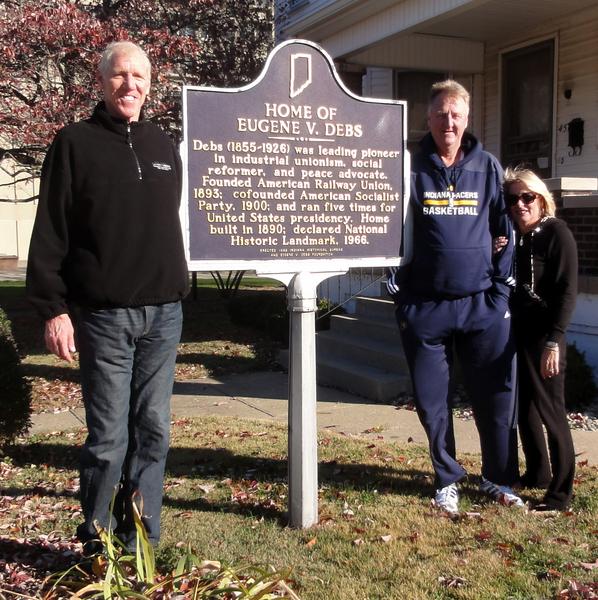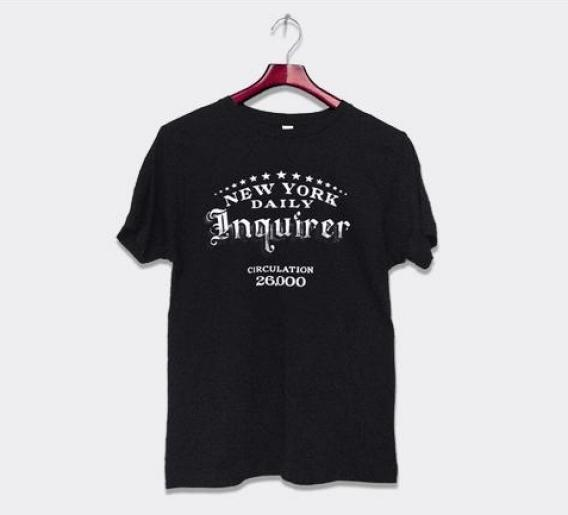 The mystery of the grassy knoll has finally been solved, and the second shooter was…John Wilkes Booth?! For the first time in an age, I took advantage of the New York theater scene last night and caught the much-heralded revival of Stephen Sondheim’s Assassins at the Roundabout Theatre, which chronicles the inner demons of Mssrs. Booth, Oswald, Hinckley, and assorted other murderers and would-be-murderers of presidents. All in all, I’d say I enjoyed it, although it took a musical number or two for me to warm to the material (some never made the leap — the guy next to me left outraged.) And there’s some memorable performances here, particularly Denis O’Hare as Charles Guiteau (Garfield’s assassin) and Michael Cerveris as Booth.
The mystery of the grassy knoll has finally been solved, and the second shooter was…John Wilkes Booth?! For the first time in an age, I took advantage of the New York theater scene last night and caught the much-heralded revival of Stephen Sondheim’s Assassins at the Roundabout Theatre, which chronicles the inner demons of Mssrs. Booth, Oswald, Hinckley, and assorted other murderers and would-be-murderers of presidents. All in all, I’d say I enjoyed it, although it took a musical number or two for me to warm to the material (some never made the leap — the guy next to me left outraged.) And there’s some memorable performances here, particularly Denis O’Hare as Charles Guiteau (Garfield’s assassin) and Michael Cerveris as Booth.
Still, the basic (and ahistorical) message of the play — that all assassins, whatever their surface motives, are just looking for a little happiness, a little love, and a little fame — was encapsulated much more succinctly by Peter Gabriel’s excellent “Family Snapshot” two decades ago. And, while I like that song and admire what this play was trying to be, this “everybody needs a hug” thesis is too reductively simplistic. Notwithstanding freak shows like Hinckley, assassination is by its very definition a political act, as is distressingly obvious to all of us given recent events in the Middle East. Sure, a lot of assassins are flat-out crazies…Hinckley, Mark David Chapman, Sirhan Sirhan. But others — Booth, Guiteau, Leon “McKinley” Czolgosz, James Earl Ray, Brutus — had a political agenda in mind that can’t be explained solely by “bad reviews” or a lack of affection as a child (which is perhaps why the Sondheim play ignores the Stalwart v. Halfbreed internecine strife propelling Guiteau to his foul deed.)
 Still, if you can stomach the subject matter, Assassins is a moderately engaging fever dream rumination on American loneliness and presidential murder, replete with a sinister carnival barker and Moebius strip leaps in and out of historic continuity. Perhaps the most resonant effect in the play is that of the other assassins — eerie, floating, voiceless heads underlit to resemble Capt. Howdy in The Exorcist — watching their colleagues from the mists of History, or from the grave. Misery loves company, and from Cassius on, assassins just adore a conspiracy.
Still, if you can stomach the subject matter, Assassins is a moderately engaging fever dream rumination on American loneliness and presidential murder, replete with a sinister carnival barker and Moebius strip leaps in and out of historic continuity. Perhaps the most resonant effect in the play is that of the other assassins — eerie, floating, voiceless heads underlit to resemble Capt. Howdy in The Exorcist — watching their colleagues from the mists of History, or from the grave. Misery loves company, and from Cassius on, assassins just adore a conspiracy.





